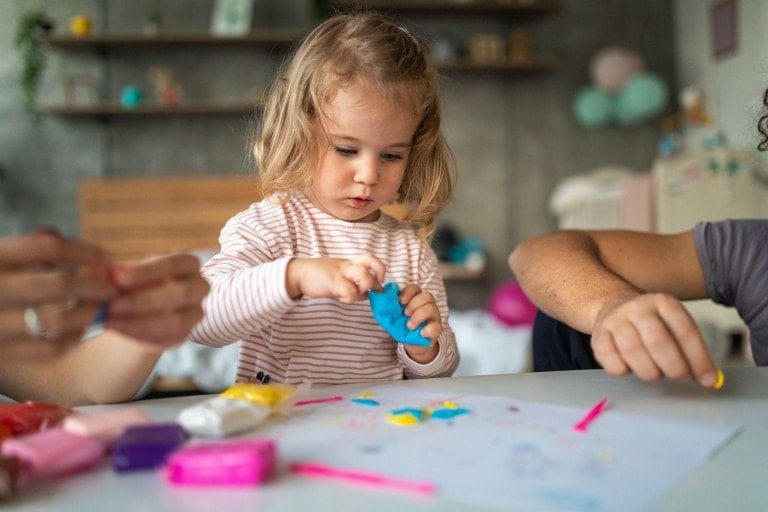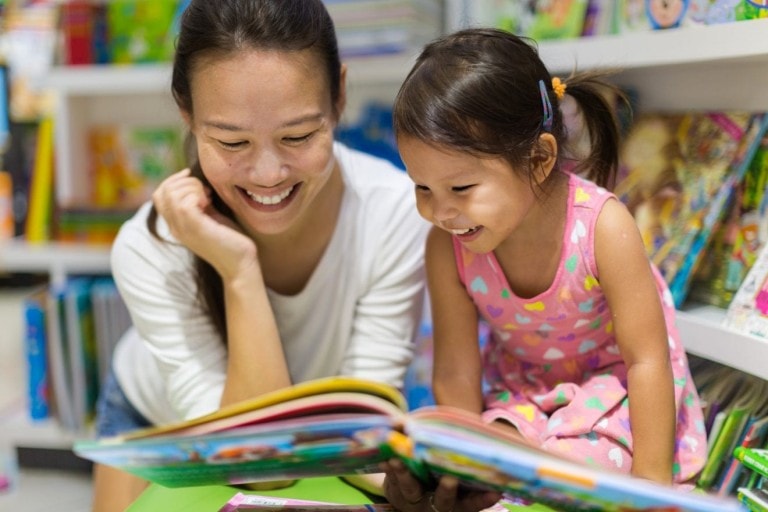As of 2018, there are over 2.3 million homeschooled students in the United States.1 The homeschool population is growing so fast that it is now considered a more “mainstream” education style, whereas just 10 years ago, it was considered an “alternative.” Research shows that homeschooled students tend to do better on tests and in college than their peers in public schools.2,3,4 Besides that fact alone, there are many other reasons to consider homeschooling your children. Here are 12 of the reasons why more parents are choosing to teach their children at home:
12 Reasons to Consider Homeschooling
1. Kids learn at their own pace.
Not every kid learns at the same speed or with the same processes. One child may learn better through reading, while another needs a more visual approach. One child may excel at language classes while another excels in math. Children in public schools are often pushed to learn more quickly than they need to understand something fully. Or they learn more quickly than the rest of their peers and then get bored. With homeschooling, you get to dictate the pace and style. You know how your child best learns and can give extra attention or more advanced work when needed.
2. They can study a wide variety of topics.
These days, kids in public schools are taught the basics of education and not much else. Only when you get into college can you take more varied and focused elective classes, but by then, it may be too little, too late. If your child wants to learn everything about playing the violin, but the public school doesn’t offer classes for string instruments, he is missing out on something he may be terrific at or passionate about. Suppose a child wants to learn how to sew or knit or bake . . . not many public schools offer these types of things. But a homeschooler can dive deep into various subjects and skills while still learning all the basics.
3. You can create your own curriculum.
Every child has different learning styles and interests and strengths and weaknesses. Every parent is different too. One homeschool mama might want to be very hands-on in educating her child, while another mom prefers her child self-teach in some respects. No two homeschooling families teach or learn the same, and that’s the beauty of being able to build your curriculum. And there are a plethora of options out there! From Christian-based to completely secular to anything in between, you can pick and choose how you set up your school year for your family.
4. Kids can learn anytime, anywhere.
Back in the good old days, kids would learn how to count, add, subtract, and multiply by helping at the family store. Kids would learn how plants grew by tending a garden. Most, if not all, learning was done with practical application and not in a classroom. In my opinion, kids learn best when they learn at their pace and outside the confines of a schoolroom. Homeschooling kids can learn at the kitchen table, on the patio, at their desk, or while waiting for a sibling to finish dance classes.
5. They can learn important life skills.
One thing public schools do not teach anymore is practical life skills. Even when I was in public school (a million years ago, it seems), no one taught us how to balance a checkbook or understand loan amortization schedules. These things would have greatly benefitted me when I entered college and managed my finances (and I got many student loans I didn’t fully understand). It’s a shame that our kids aren’t taught how to survive in the real world on a practical level and, instead, are forced to pass calculus even though most will never need to use it.
6. Creativity and imagination are nurtured, not stifled.
Unfortunately, many public schools are cutting creative programs because they lack funding. This means that art, music, dance, theater, and other creative outlets are being removed from our kids’ learning resources. For me, this is not acceptable. I come from a legacy of creative minds; the arts are life to my family and many others. Pursuing creative interests also stimulates parts of a child’s brain essential to proper learning and development.5 With homeschooling, you can nurture your child’s particular talents and creative interests and watch them shine!
7. Kids are taught to be lifelong learners.
When you’re allowed to learn at your own pace, encouraged to dig into subjects that interest you, and allowed to express your creativity, why wouldn’t you want to learn for the rest of your life?
8. They can learn to play with and appreciate kids of all ages.
How do homeschooled kids get to practice socialization if they’re stuck at home all day? Most homeschool families have their children enrolled in activities that provide plenty of social interaction with other kids of all ages. Activities such as dance classes, art or cooking classes, church activities, or community service programs. Additionally, a lot of homeschool families participate in homeschool co-ops. Homeschool co-ops are families that meet and work cooperatively toward a common goal, such as academics, sports, creative activities, etc. There is no lack of opportunity for social interaction with kids of all ages when you’re a homeschooled child.
9. Kids can learn with fewer distractions.
When children are learning at home, there is far less opportunity to become distracted. There are no noisy or disrespectful classmates or other common distractions, like in a traditional classroom. Moreover, homeschooling can be a lifesaver for kids with behavioral or attention issues. This goes back to the child having the opportunity to learn at his own pace. This may include slowing down and taking breaks as needed. Easily distracted kids will often thrive in the homeschooled environment.
10. You can work on behavior issues and work ethic.
It is far easier to address behavioral issues when a child is homeschooled. Teachers who oversee 20+ kids often don’t have time or energy to cater to the behavioral issues of one or two children. So the underlying causes of these issues may never be flushed out and corrected. Similarly, a child whose work ethic may need a little work will benefit from a homeschool environment’s personalized attention.
11. You can teach your own values.
Many homeschool parents choose to homeschool because they want to control the values fed to their children in their learning environment. Christian parents often want to teach Biblical values along with traditional academic studies. Secular parents can ensure their kids aren’t taught religious values they may not subscribe to. Whatever the case, these parents get to choose the underlying current of values and morals that their children are ingesting daily.
12. You can customize your schedule.
This is a huge perk of homeschooling, in my opinion! Many homeschooling families complete their daily studies in half the time traditional school students do. They’re then free to spend the remainder of the day learning in other unique ways, such as extracurricular activities, co-op groups, or simple, practical life skills. Moreover, these families are not constrained by a strict school year schedule. They can take a vacation or time off while still completing their school work.
I am sure most homeschool families would offer many more benefits to this list of why homeschooling is something to consider for your child. Regardless of how you choose to educate your child, having supportive and attentive parents at home makes a world of difference in how well a child does in their formative school years.





























